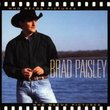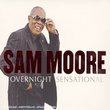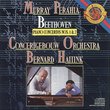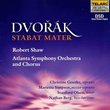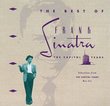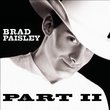| All Artists: Ewa Poblocka, London Symphony Orchestra Title: Andrzej Panufnik: Symphony No. 9 / Piano Concerto Members Wishing: 0 Total Copies: 0 Label: Conifer Release Date: 4/11/1995 Genre: Classical Styles: Forms & Genres, Concertos, Historical Periods, Modern, 20th, & 21st Century, Instruments, Keyboard, Symphonies Number of Discs: 1 SwapaCD Credits: 1 UPC: 743211618922 |
Search - Ewa Poblocka, London Symphony Orchestra :: Andrzej Panufnik: Symphony No. 9 / Piano Concerto
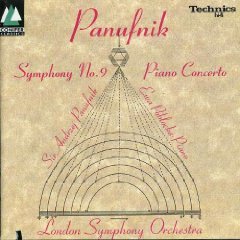 | Ewa Poblocka, London Symphony Orchestra Andrzej Panufnik: Symphony No. 9 / Piano Concerto Genre: Classical |
Larger Image |
CD DetailsSimilar CDsSimilarly Requested CDs
|
CD ReviewsModern, but not aggressively so, and music of great dramatic Discophage | France | 09/12/2008 (5 out of 5 stars) "Panufnik's music is modern, but not aggressively so. It isn't Boulez, Xenakis, Carter, it isn't the Penderecki from the 1960s and early 1970s, let alone Ferneyhough. Panufnik's music is bound in tradition (the motoric and nervous scherzo that forms the Symphony's middle section harks back to a tradition originating in the one from Beethoven's 9th, and exemplified by Bruckner, Walton (in his 1st Symphony), Britten (in the Sinfonia da Requiem for instance), Tippett, Simpson), but it isn't backward-looking either: it isn'the music of, say, David Diamond or of the later Penderecki. I'd rather put Panufnik in a broad category including composers like Robert Simpson, William Schuman, Alan Pettersson. I wouldn't say that Panufnik's personal mixture of tradition and modernism attains results as original and personal as Lutoslawski's or Dutilleux', but his music is highly dramatic, effective and enjoyable, and the two works contained on this disc are two good examples.
This recording made by Conifer in 1991 has recently been reissued by Catalyst (Panufnik: Symphony No. 9 (Sinfonia della Speranza); Piano Concerto, see my review) but shorn of the composer's fascinating liner notes and lengthy explanations of both works, including a diagram of the Symphony's highly elaborate rainbow-shaped architecture. The details of it are to complex and intricate to be expounded here, but playing by ear the lengthy (40+ minutes) 9th Symphony (1986/90) consists of long adagio sections, some of great dramatic impact and high-octane intensity, others more mysterious and mystic, framing a motoric, nervous, sardonic, brassy scherzo (16: 25 to 23:23), all playing without break. These long adagio sections may be somewhat too long-drawn for their basic material, but they do elicit a mood of lulled fascination. On Conifer as well as on the Catalyst reissue the Symphony has only one cue point, which is ridiculous, and my only qualm with this disc. Dating as it does from 25 years before the Symphony (1962 - it was revised in 1982), I half-expected the Concerto to be a step back stylistically - but it isn't really. The nervous, pounding and busy (and also short: 4:20) first movement and the violent and motoric framing sections of the finale announce the Symphony's scherzo, while the sparse and mysterious instrumental filigree of the central slow movement (brooding mood, sparse textures, minimal events) and the finale's middle section (an adagio rising to an intense climax announcing the return of the motoric music) are very much in the same mood as the Symphony's framing adagios. They also establish a nice bridge to the composer's earlier compositions, as his 1947 Nocturn (Andrzej Panufnik: Nocturn / Rhapsody / Symphony 2). The Concerto is not extraordinarily original, but very pleasant. Peter Mennin's Piano Concerto comes to mind. These composer-conducted recordings were made a few months before Panufnik's death. Needless to say, they are authoritative. If only for the liner notes this original Conifer release is preferable if you can find it at affordable prices. " |




